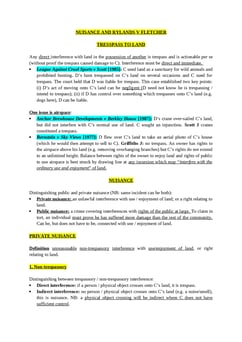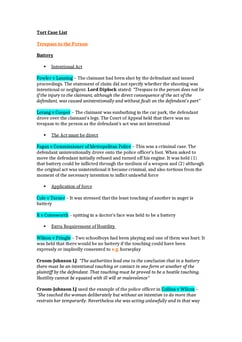Liverpool Women’s Hospital v Ronayne [2015] EWCA Civ 588
Judgement for the case Liverpool Women’s Hospital v Ronayne
Table Of Contents
KEY POINTS
Citing Alcock v Chief Constable of South Yorkshire Police, "Shock" in the context of this cause of action, involves the sudden appreciation by sight or sound of a horrifying event, which violently agitates the mind. It has yet to include psychiatric illness caused by the accumulation over a period of time of more gradual assaults on the nervous system."
What is necessary to establish liability is something that is of an extraordinary nature.
FACTS
Edward Ronayne, an ambulance driver, witnessed his wife's severe medical deterioration due to negligence by the NHS Foundation Trust, which led to her needing emergency surgery and intensive care. His wife's appearance became distressing with swelling and complications.
Although she eventually recovered, he claimed to have suffered post traumatic stress disorder (PTSD) as a secondary victim due to the shock of witnessing her decline.
He sought damages for this psychiatric injury resulting from the negligence.
JUDGEMENT
The court ruled in favour of Liverpool Women’s Hospital. Claimant PTSD was not caused by a “shocking event.”
COMMENTARY
This case addresses the nuanced legal aspects of secondary victim claims, particularly in the context of medical negligence.
It underscores the challenges in establishing such claims and discusses the criteria that need to be met for a successful claim for psychiatric injury suffered by a witness or close relative due to negligence affecting another person.
RELATED CASES
For Further Study on Liverpool Women’s Hospital v Ronayne

Tort Law notes fully updated for recent exams at Oxford and Cambridge. ...
Need instant answers? Our AI exam tutor is here to help.
Ask questions 🙋 Get answers 📔 It's simple 👁️👄👁️
Our AI is educated by the highest scoring students across all subjects and schools. Join hundreds of your peers today.
Get StartedSimilar Cases
Related Product Samples
These product samples contain the same concepts we cover in this case.
| GDL Tort Law | Negligence Psychiatric Harm Notes (5 pages) |
| GDL Tort Law | Negligence Nervous Shock Notes (14 pages) |
| Tort Law | Nervous Shock Notes (4 pages) |
| GDL Tort Law | Psychiatric Injury Notes (8 pages) |

 Since 2010, Oxbridge Notes has been a trusted education marketplace, supplying high-quality materials from top achievers at universities like Oxford, Cambridge, LSE, Harvard, and Yale.
Since 2010, Oxbridge Notes has been a trusted education marketplace, supplying high-quality materials from top achievers at universities like Oxford, Cambridge, LSE, Harvard, and Yale.